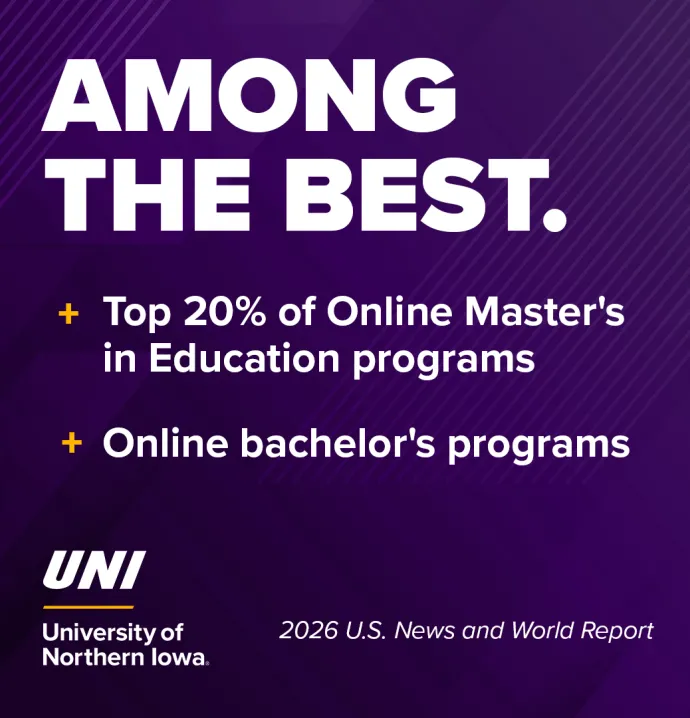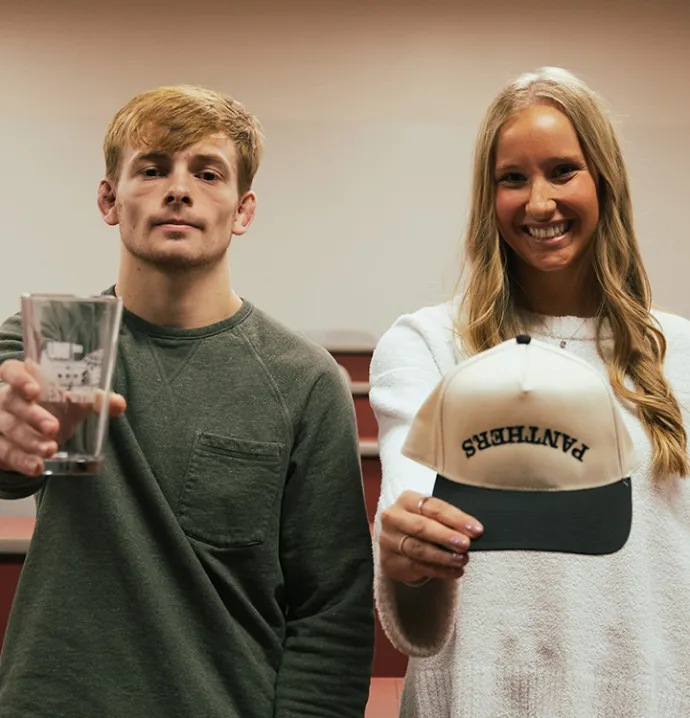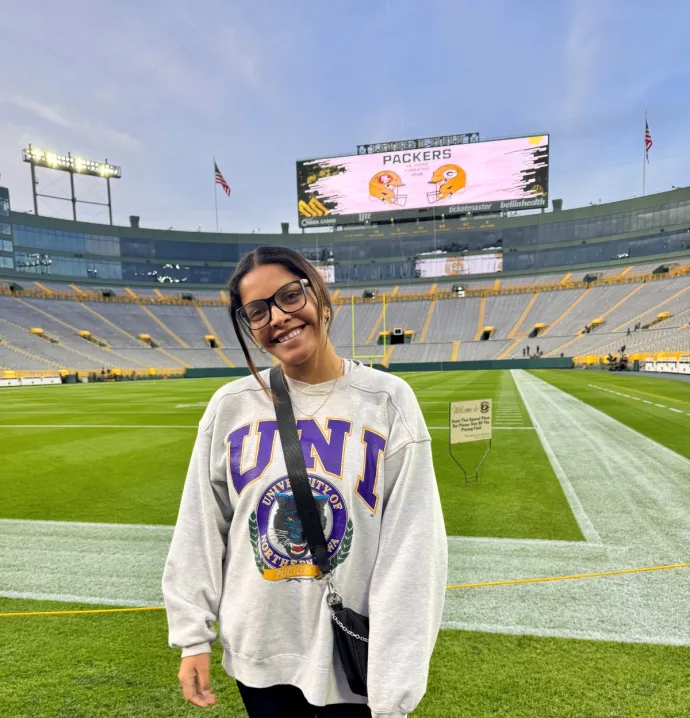UNI business grad leads Iowa’s newest pro hockey team
UNI business grad leads Iowa’s newest pro hockey team
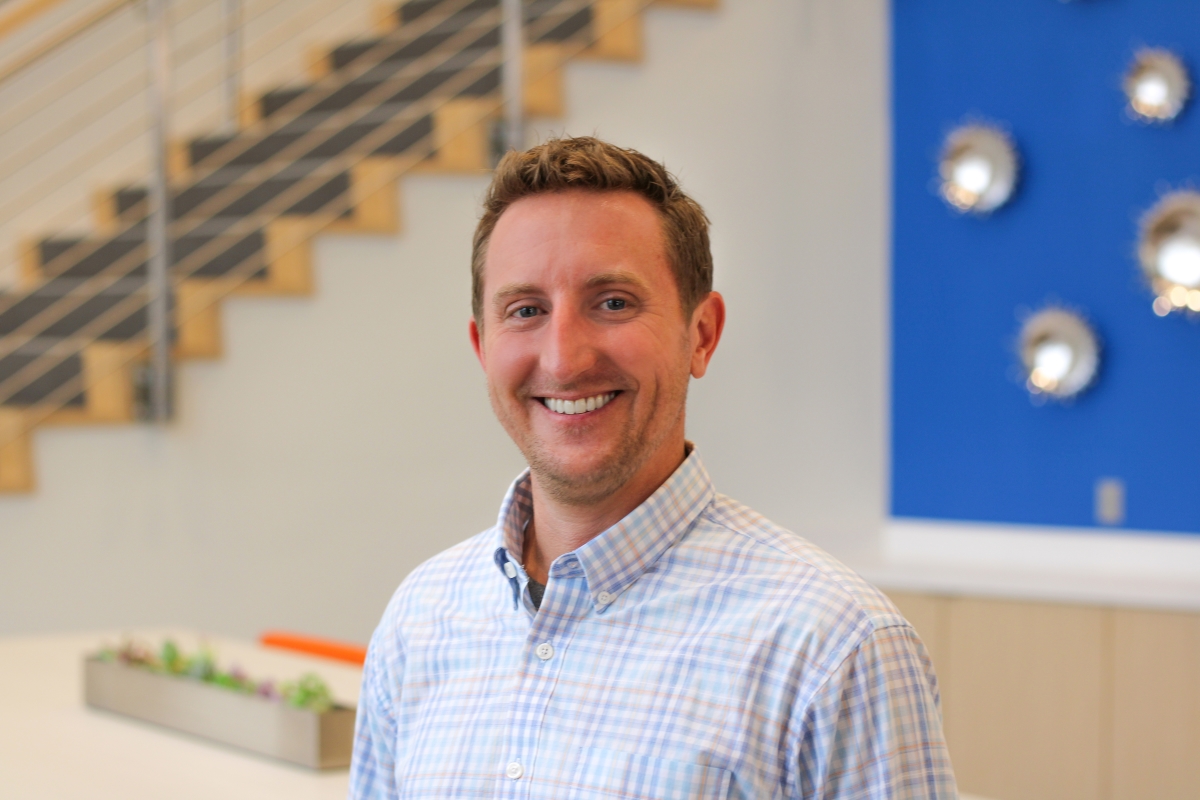
Hockey may be at the core of what Matt Getz does every day, but it’s not what got him interested in his current position as president of the Iowa Heartlanders – a professional team located in Coralville affiliated with the National Hockey League’s Minnesota Wild.
In fact, before coming to the Heartlanders, Getz had only seen a handful of hockey games, on TV or in person. It’s his business acumen that made him the perfect fit to be accountable for the team’s success.
“Essentially, I’m the head of a multi-million dollar business,” he said. “While we are a sports organization, 95% of what I do is focused on the financial implications of running a business, with P&L statements, income streams, cost containment, branding, HR/people operations, just like the president of any other business.”
Getz, who graduated from UNI in 2003 with a degree in marketing with an emphasis in sales and advertising, attributes a great deal of his success to his UNI experience. While he admits he’s not an expert on hockey, he says his time at UNI readied him for the challenge.
“UNI prepared me to look at the opportunity in that situation, as well as gave me the tools to know how to explore, learn and lead all at the same time,” he said. “The leadership skills I learned through the Wilson College of Business instilled confidence, encouraged me to take on challenges, as well as taught me how to work with a variety of personalities, backgrounds and team sizes.”
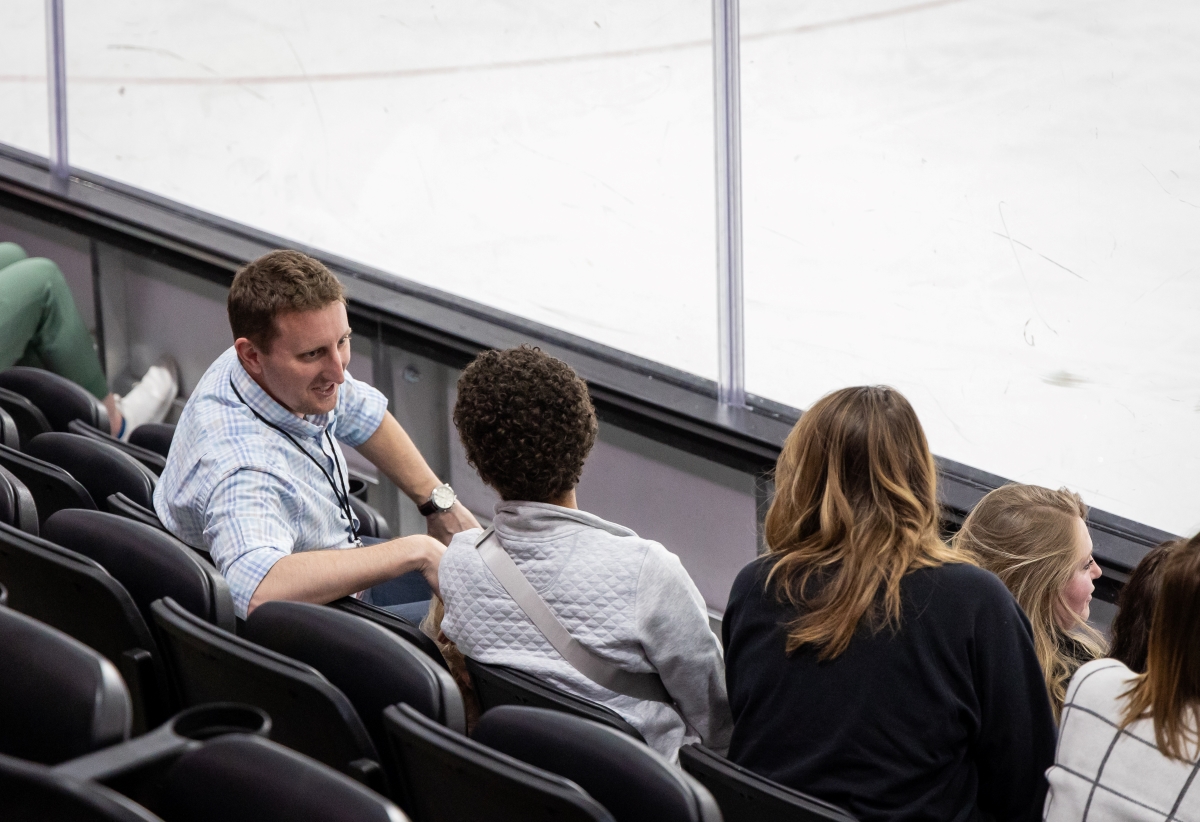
As president, Getz oversees the entire Heartlanders organization, which can be divided into the front office and hockey operations staff. The front office is the business side of the organization, while hockey operations includes overseeing the head coach and working with him on roster management. Overlapping both is managing the many partnerships the team has with key vendor partners in the community, including Xtream Arena, its ownership, and medical program with University of Iowa Hospitals and Clinics.
Steve Corbin, now professor emeritus, was especially influential on Getz.
“He changed the way I looked at the concept of selling, which is something I do every day, even though I’m not in a traditional sales role,” said Getz. “We sell all day, every day, and he helped me refine my skills and attitude around that.”
Getz is also helping the Heartlanders leverage the power of analytics. While analytics and data are vital pillars in the success of most businesses, it’s still a bit unusual in the sports industry, according to Getz. Getting it off the ground and ensuring insights are driving effective decision-making has been a passion project.
“Feeling confident that your time, people, funds, and energy are deployed into projects and ideas that will actually make a difference is critical in today’s business climate. There isn’t the room for trial and error,” he said. “Making the correct decisions happens far more frequently when you have quality data. At the end of the day, the core function of management is to make decisions that will most effectively accomplish the goals of the organization.”
Thinking back to his time in Cedar Falls, Getz says UNI’s size was appealing after attending a small high school and graduating with a class of just 18. He liked the idea of being able to blend in to an extent without feeling too lost in the crowd.
“UNI afforded me opportunities that I couldn’t have received at a smaller institution while still allowing me the ability to participate in all the activities and organizations I wanted to, which wouldn’t have been available at a larger institution,” he said.
The college transition was not without its challenges, but, fortunately, he found a community to help him succeed.
“I was a 4.0 student in high school, and things came easy to me. When I got to UNI, that wasn’t the case,” he said. “The new realities of being a college student - navigating a new city, living without parents, buying groceries and even doing laundry can be a challenge. At every turn, there was a support system to help me through that. I did the work, but I wasn’t alone.”


